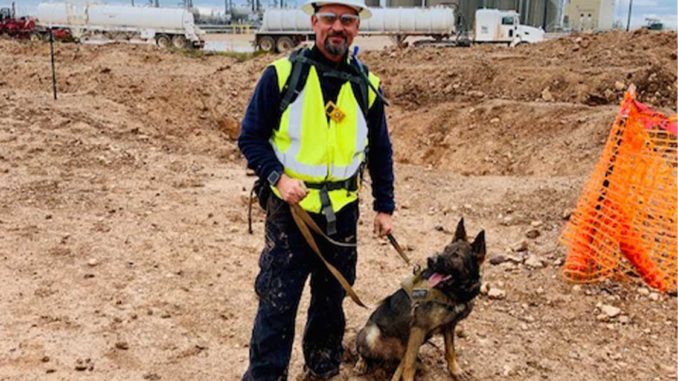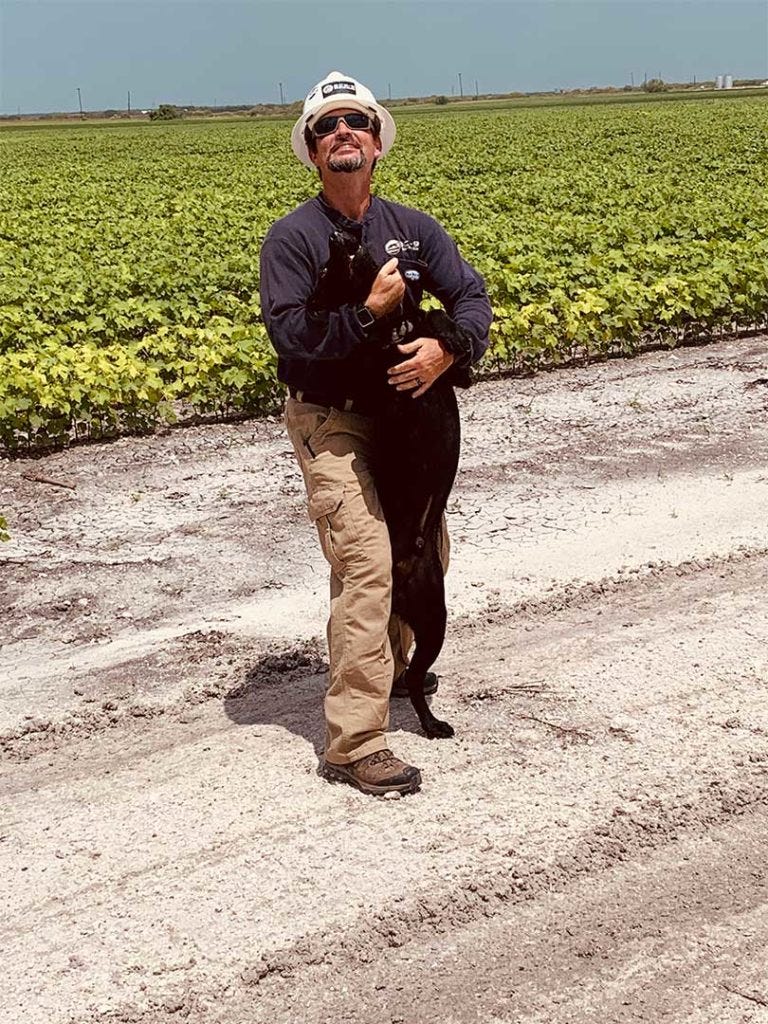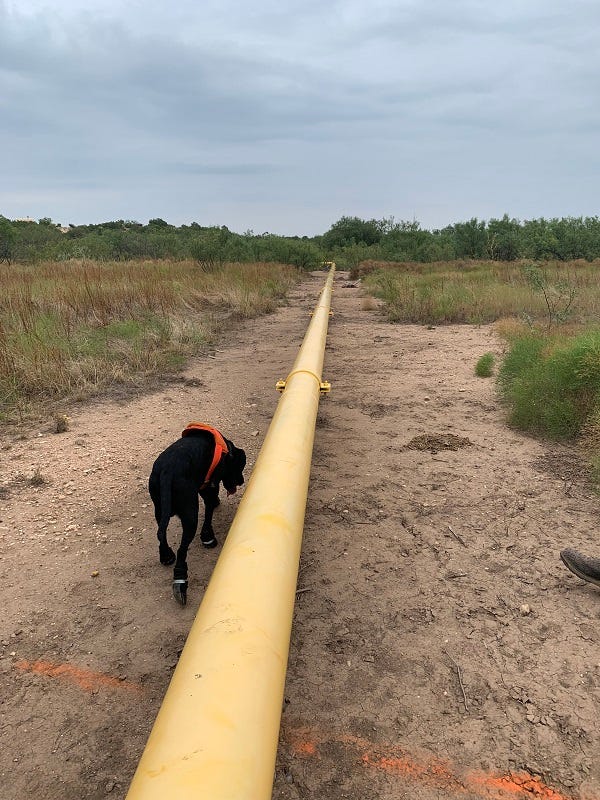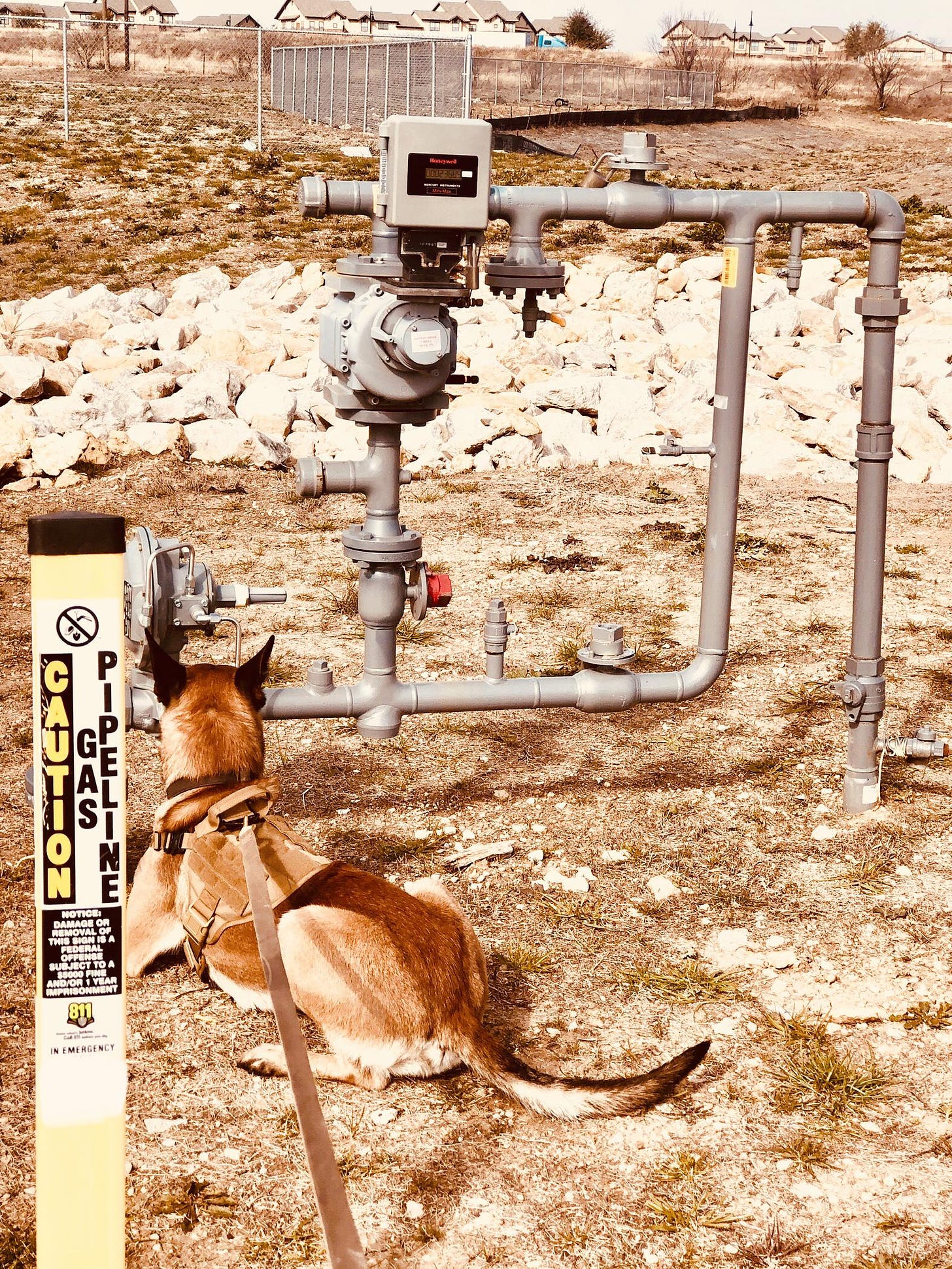

Dwayne Farris, Black Creek K9 Pipeline Leak Detection, joined Townsquare Media’s Talk of the Town with Steve Bakken and guest co-host Jason Spiess, founder of The Crude Life.
The oil and gas industry is a major economic driver, providing energy and jobs to many countries. As the industry continues to grow, so does the need for safer and more efficient methods to detect and prevent costly pipeline leaks.
A relatively new development that is helping to save the industry money is the use of pipeline sniffing dogs.
These specially-trained dogs are able to quickly and accurately detect leaks in pipelines, reducing downtime and repair costs. In addition, pipeline sniffing dogs (or pipeline leak detection dogs) are an innovative solution to marketing as well as connecting with the masses. Many people love dogs.

Leaks in pipelines, whether caused by human error or natural disasters, can be costly to repair and result in significant downtime for the entire operation. As the industry continues to expand and more pipelines are being built, detecting and preventing leaks has become increasingly difficult and costly.
These specially-trained dogs are able to quickly detect the presence of hydrocarbons in pipelines, which can indicate the presence of a leak.
“The dogs are trained to detect even the smallest leaks, and can be used in a variety of situations, from large-scale operations to smaller, localized pipelines,” Farris said. “The dogs are able to detect the presence of hydrocarbons in the air, allowing them to identify the location of a leak with remarkable accuracy.”
The use of pipeline sniffing dogs is a much more efficient and cost-effective method of leak detection than traditional methods, such as manual visual inspections or electronic sensors.
Spiess added that many times manual inspections require a large number of personnel and can take a considerable amount of time to complete, while electronic sensors can be costly and often require a certain level of expertise to operate.

By comparison, pipeline sniffing dogs can be deployed quickly and with minimal personnel, and they are able to cover a much larger area in a shorter period of time.
Farris served in the United States Marine Corps as a Military Police Officer receiving assignment as a Military Working Dog handler. This experience brought him to the oil and gas industry detecting leaks in pipes with dogs.
“I had the fortunate paths cross of canine work and military while in the Marines and I competed and got selected and that’s what started the journey,” Farris said.
Understanding the skills of the canine and working ethics of a dog was something Farris found remarkable and totally understands why Hollywood has gotten on the Military Dog angle the past decade as a way to connect a military brand to the average person.
“Even in movies today you can see how they’ve gone towards telling the story of these dogs,” Farris said. “A lot of that is trying to capture memorable events for military or service members with working dogs.”
The types of dogs used in pipeline leak detection is discussed from bloodhounds to labradors to shepherds.

In the second half of the interview, Farris talks about his expansion into other areas of working dogs. His military background became a natural evolution for BCK9 Services to add narcotics and firearms inspections to the working dog’s list of specialties.
Much like his former additions of new revenue generators for BCK9 Services, this year Farris has added one more – Pet Training.
“No matter their age, breed or behavioral problem, we can help,” Farris said. “And best of all we do not use any forceful techniques with our animals.”


